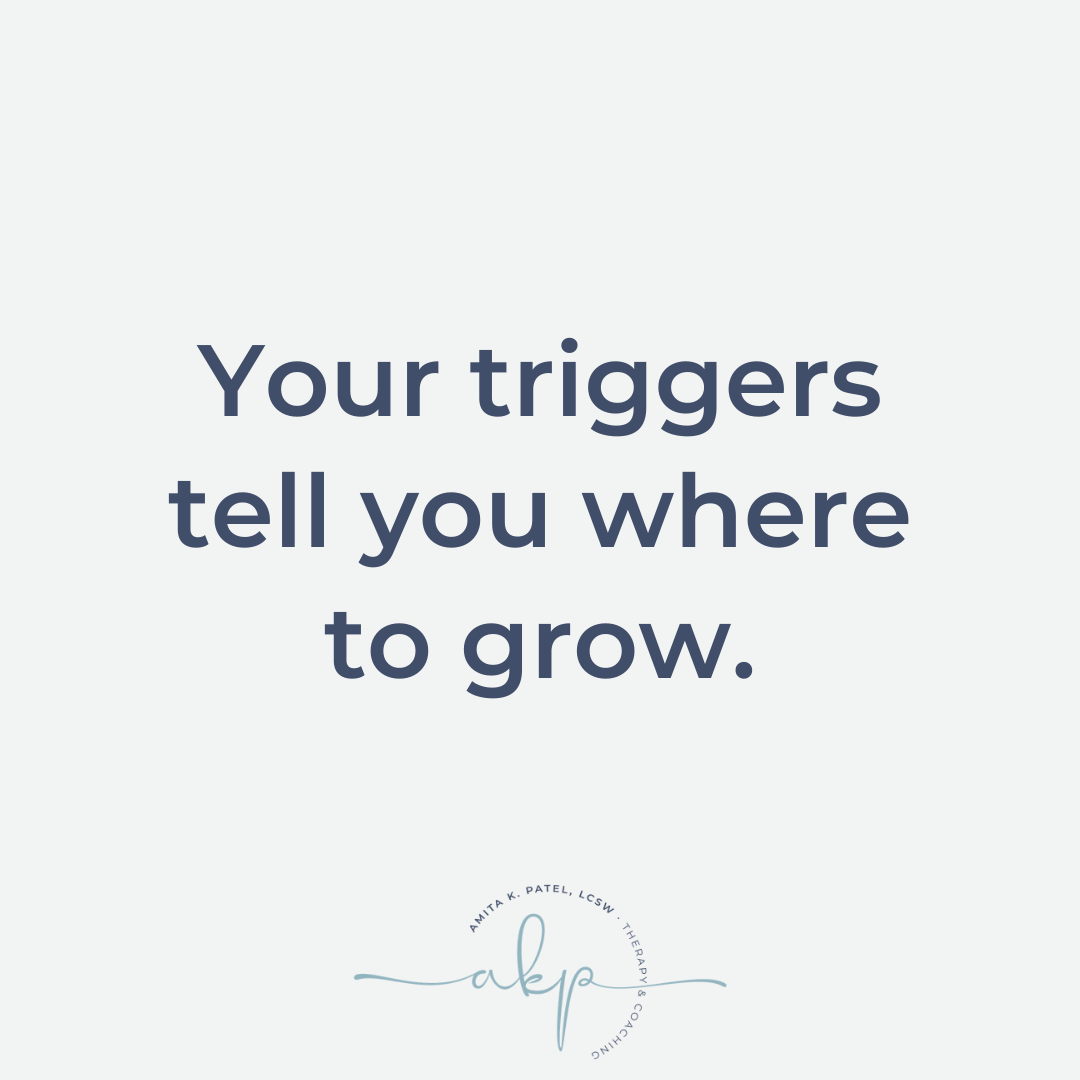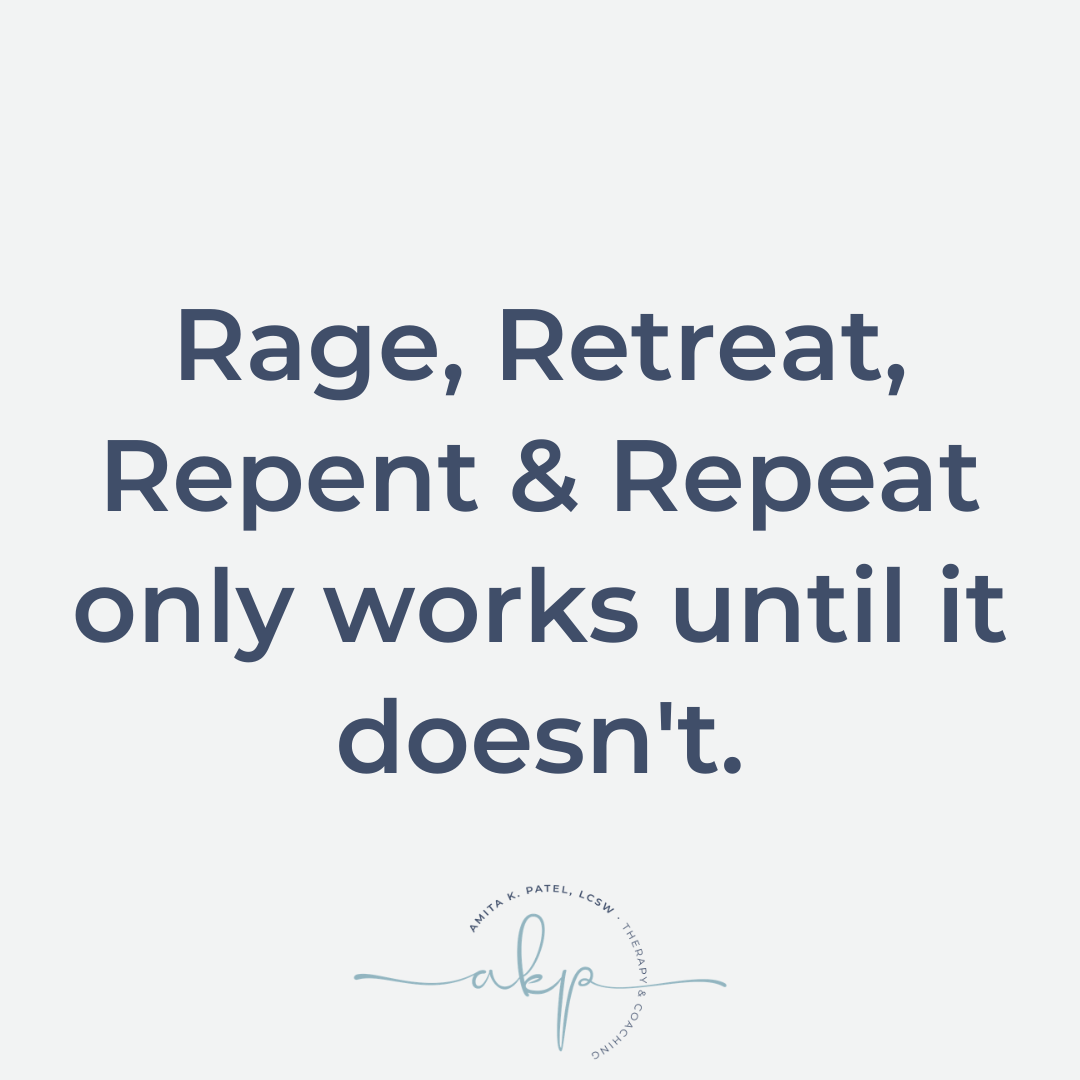5 Tips To Self-Regulate & Cope When You're Triggered
With the world being what it is, we all experience some level of distress daily, ranging from mild annoyance & anxiety to triggered & terrified. And while the former is a common reaction to upsetting content, the latter is a trauma response.
For trauma survivors, triggers go well beyond feeling upset by recent events. Triggers can be sights, smells, sounds, a feeling, or a thought. We lose our sense of time, space, and self.
Given how difficult it can be to identify when we’re triggered, let alone navigate it, the solution must be to avoid triggers, right?
Not quite.
I’m all about giving people a “trigger warning.” And while that may give us a bit of control as we scroll through social media, it rarely exists in real life. Whether it’s watching the news, enduring friends’ attempts at jokes, or prying questions from family members, social interaction can often feel like a game of minesweeper. And much like minesweeper, none of us know when we’ll be hit or understand the rules.
If you’ve experienced trauma, you’ve got 3 options:
Avoid everything. Live in a cave. I don’t recommend this option as triggers can happen internally, avoiding triggers won’t help you heal, and caves are cold.
Avoid nothing. See all the people. Consume all the content. I like to think of this option as the “rage, retreat, repent, repeat” method. While you’d likely get familiar with your triggers faster than Ollie when he hears a ball, you’ll heal slower than Ollie when he hears a bath. You’ll also strengthen your negative beliefs and weaken your relationships in the process. In other words, this method is informative, but painfully impractical.
Live amongst humans. Choose when to push and when to pull back. This option gives you the best of both worlds. It also gives you the worst of both worlds. And isn’t that what life’s all about? JK, sort of.
No matter which option you choose (though you should go with option 3, duh!), you need an action plan for when you feel/identify that you’re triggered.
Here are 5 tips to self-regulate & cope when triggered:
Get grounded. When triggered, your nervous system freaks the f*ck out. You’re either jacked up emotionally and above your window of tolerance, or are dissociated and below your window of tolerance (more on that in a future post!) Remind your nervous system that it’s safe to be in your body by breathing, doing a body scan, and/or orienting yourself to the present moment. My 2 favorite ways to do this are to:
Play a therapeutic version of “I spy.” Challenge yourself to find 5 blue objects, 4 round objects, 3 square things (or some such combination). The combination of sensory and cognitive elements remind us that we’re safe where we are.
Engage the senses. A personal go-to is to apply scented handcream while taking deep breaths. The combination of touch and smell reminds me I’m okay. Also, my hands are always dry and need it.
Get outside. Nature, even NYC’s version of nature, is better than fluorescent lights and stale air. If it feels safe to get your body moving, try going for a short walk. I know we’ve all heard this shit before, but it really does work and thus bears repeating.
Get space (from the trigger). As a reminder, you can end a conversation that’s triggering you, you can walk away and say you need to pee, you can pretend your dog needs a walk, you can turn off the TV, and you can tell people you need a time out. (Yes, I’ve done all of those…Ollie doesn't need to go out nearly as often as I claim. I’m just an introvert navigating a world full of emotionally unintelligent extroverts…sigh).
Get connected (to the right people). Call a friend/family member and tell them you need them to listen without giving you advice. Naturally, they will want to help by attempting to “fix” the problem. Not surprisingly, this will not help you. So only do this with someone who can take direction prior to divulging your feelings.
Get support (from a professional). Not all therapists are equipped to deal with trauma. Sad, but true. Find a qualified therapist who’s been trained in trauma-specific therapeutic modalities such as Somatic Experiencing, Sensorimotor Psychotherapy, Internal Family Systems, and EMDR (to name a few.) I’m not trying to hate on all the strict CBTers out there, but I’m not not hating on them, too. No matter which modality you and your therapist choose, make sure you feel safe and understood. Don’t be afraid to speak up and let them know what you need less and more of. It’s about you, after all!


